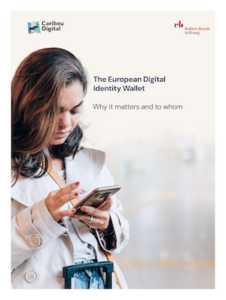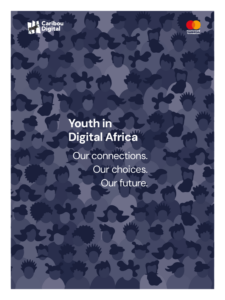Digital identity systems are not devised for their own sake, rather they are developed by institutions as part of their pursuit of specific goals—such as economic, social, and developmental outcomes through enabling individual rights and facilitating access to basic services and entitlements. A growing number of organizations and institutions are advancing specific principles, frameworks, and “imaginaries” of what “good” digital identity looks like—yet it is often not clear how much influence they have or what their underlying worldview is to those designing, developing, and deploying these systems. This paper introduces sociopolitical configurations as a means of studying these underlying worldviews. Sociopolitical configurations combine elements from technological frames, expectations, and imaginations as well as developmental discourses to provide a basis for critically examining three key documents in this space.
Explore latest publications

The European Digital Identity Wallet: Why it matters and to whom
By Caribou Digital
Digital Identity, Governance of Digitalization, Refugees and Forced Migration
The European Digital Identity Wallet: Why it matters and to whom
Digital Identity, Governance of Digitalization, Refugees and Forced Migration
Policy Brief
By Caribou Digital
June 25, 2024
By Caribou Digital

Earth Observation for Public Health: Topical Overview
By Carlotta Maucher
Earth Observation / Satellite Imagery, Health
Earth Observation for Public Health: Topical Overview
Earth Observation / Satellite Imagery, Health
Policy Brief
By Carlotta Maucher
May 28, 2024
By Carlotta Maucher

Youth in Digital Africa: Our connections. Our choices. Our future.
By Caribou Digital
Digital Financial Services / Financial Inclusion, Education/Skills/Upskilling, Gender in a Digital Age, Inclusive Digital Business Models, Persons Living with Disabilities, Platform Economies and Livelihoods
Youth in Digital Africa: Our connections. Our choices. Our future.
Digital Financial Services / Financial Inclusion, Education/Skills/Upskilling, Gender in a Digital Age, Inclusive Digital Business Models, Persons Living with Disabilities, Platform Economies and Livelihoods
Research Report
By Caribou Digital
May 23, 2024
By Caribou Digital
Pages
- Blog
- Call for Proposals: Platform Livelihoods Gender Study
- Collaboration for Impact
- Event Management
- Gender
- Home
- Identity and migration
- Live Learning: MTN DigiFin Fintech Edition – Apps in action
- Measurement and Impact Services
- MTN Live Learning
- Newsletters
- People
- Platform-Led Transformational Upskilling Report
- Projects & Services
- Publications
- Request for Proposals Video Storytelling: Platform Livelihoods & Covid-19
- Senior MEL advisor
- Skills for a Digital Age
- Strive Community Privacy
- Strive EU Privacy Policy


